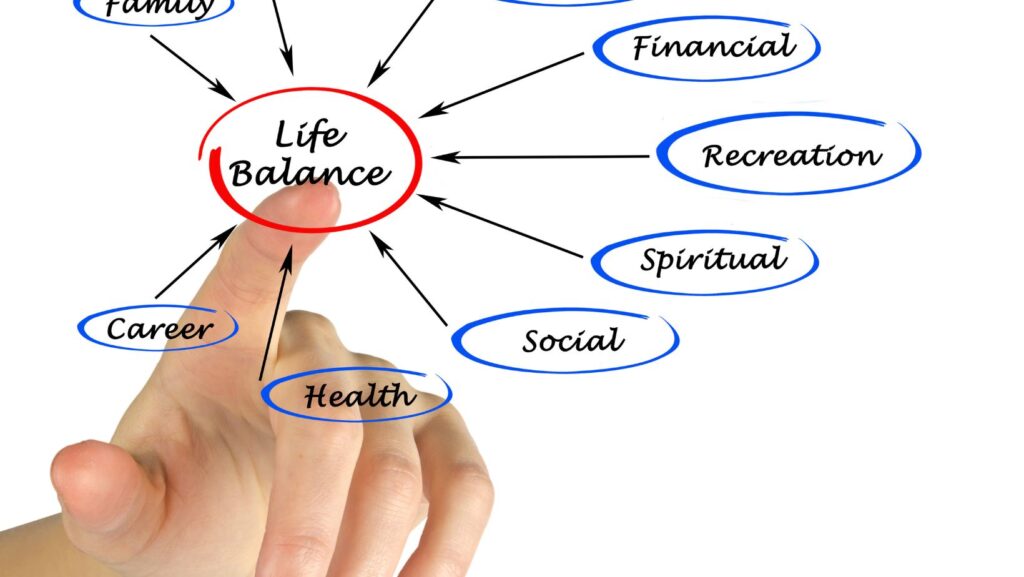In today’s fast-paced world, finding the secret to living a balanced life seems more elusive than ever. With the constant demands of work, family, and personal commitments, many feel like they’re walking a tightrope just to keep up. Yet, achieving balance is crucial for mental well-being and overall happiness.
What is the Secret to Living a Balanced Life?
Maintaining a balanced life involves several strategies. Prioritizing personal values guides decision-making and ensures actions align with core beliefs. Successful individuals often allocate time based on personal importance rather than external demands. They understand that balance necessitates flexibility and are willing to adapt their schedules to meet changing circumstances.
 Developing emotional resilience aids in handling stress effectively. Mindfulness practices such as meditation, journaling, and deep breathing exercises help cultivate presence. These techniques enable individuals to stay centered amidst life’s challenges.
Developing emotional resilience aids in handling stress effectively. Mindfulness practices such as meditation, journaling, and deep breathing exercises help cultivate presence. These techniques enable individuals to stay centered amidst life’s challenges.
Engaging in regular physical activity supports both mental and physical well-being. Whether it’s yoga, running, or dance, these activities promote health and reduce stress. Exercise also encourages the release of endorphins, enhancing mood and fostering a sense of accomplishment.
Setting realistic goals helps maintain motivation. Decoupling from perfectionism allows individuals to acknowledge accomplishments, learn from setbacks, and stay focused on growth. Celebrating small victories builds momentum, while recognizing failures as opportunities for learning fosters continuous improvement.
Identifying Core Values
Identifying core values is essential for living a balanced life. Core values serve as a compass, guiding individuals toward decisions that resonate with their authentic selves. When individuals know what truly matters, they’re more equipped to make choices that align with these priorities, reducing stress and increasing satisfaction.
 Examining past experiences can reveal insights into core values. Reflecting on moments of fulfillment or disappointment helps identify recurring themes that highlight what individuals deem important. Journaling about these experiences aids in clarifying these values over time.
Examining past experiences can reveal insights into core values. Reflecting on moments of fulfillment or disappointment helps identify recurring themes that highlight what individuals deem important. Journaling about these experiences aids in clarifying these values over time.
Another effective method is clarifying priorities. Listing activities or commitments and ranking them by personal significance uncovers underlying values. This process encourages conscious decision-making that aligns with one’s true self rather than external pressures.
Analyzing emotional responses also reveals core values. Observing reactions to certain situations or decisions can pinpoint values under threat or affirmation. Recognizing these triggers allows for better alignment between choices and inherent beliefs.
Aligning actions with core values fosters a balanced life, as decisions rooted in personal truth lead to greater fulfillment and harmony across various life domains.
Prioritization Techniques
Importance of Setting Goals
Setting goals directs energy toward meaningful pursuits. Defined objectives help individuals allocate time and resources efficiently. They differentiate between urgent and important tasks, reducing stress and increasing productivity. Specific, measurable goals also facilitate progress tracking, keeping motivation high while enhancing personal growth.
Balancing Between Work and Personal Life
Balancing work and personal life requires strategic scheduling. Clear boundaries between professional duties and personal time can prevent burnout. Designating unplugged periods from work-related communication creates space for relaxation and family interactions. Additionally, prioritizing tasks based on personal values ensures that important life aspects receive proper attention. Flexible work arrangements further support equilibrium, allowing individuals to respond to personal needs without compromising career commitments.
Mindfulness and Well-being
 Embracing mindfulness enhances overall well-being and supports a balanced life. Mindfulness involves focusing on the present moment, which can reduce stress and increase emotional awareness. Practicing mindfulness through meditation or mindful breathing helps individuals improve concentration and gain insights into their thoughts.
Embracing mindfulness enhances overall well-being and supports a balanced life. Mindfulness involves focusing on the present moment, which can reduce stress and increase emotional awareness. Practicing mindfulness through meditation or mindful breathing helps individuals improve concentration and gain insights into their thoughts.
Regular mindfulness practices strengthen mental health. They allow individuals to respond to stress with greater clarity and composure, improving emotional resilience. This approach facilitates self-regulation and encourages positive emotional patterns in daily life.
Incorporating mindfulness into daily routines impacts physical health positively. Research indicates that mindful practices can decrease blood pressure, enhance sleep quality, and boost immune function. By fostering an environment of well-being, mindfulness supports the integration of various life aspects harmoniously.
Mindfulness creates a foundation for setting and achieving balanced goals. When individuals are more aware of their true feelings and motivations, they make decisions aligned with authentic values. This awareness promotes a sense of fulfillment, aligning actions with intentions effectively.

